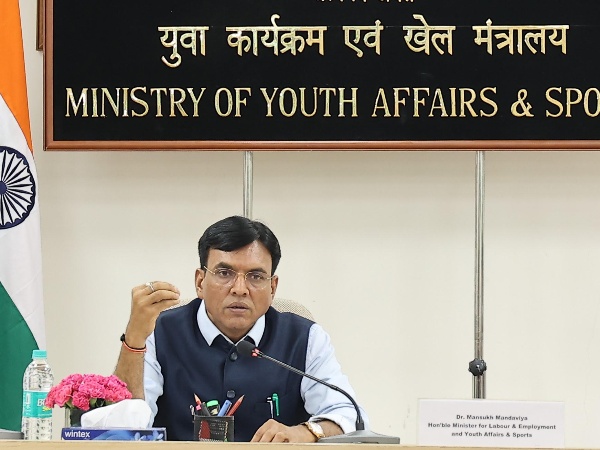Ministry forms Advisory Committee to exert more pressure on National Federations
The Ministry of Youth Affairs and Sports revived an idea it had abandoned some years ago and on Saturday rebranded it as the Sports Experts Advisory Committee (SEAC) and Sports Experts Panel (SEP) in a bid to wield greater control over the National Sports Federations, their internal governance mechanisms and selection matters.
The SEAC and the SEP are reminders of the time when the Ministry had observers for each high priority and some priority sport. They were called Government Observers since 2011 and National Observers since 2017. This concept was quietly withdrawn some years ago, and it appears that the lessons from that experiment have not been learnt.
Not a few are wondering why these panels have been formed now since oversight systems are already in place. From appointment of coaches or monitoring performances of athletes and teams or to discuss long term athlete development programmes with National Sports Federations and the Annual Calendar for Training and Competition, everything is monitored.
At a time when the attempt must be to ensure seamless work by everyone in the sports ecosystem, Ministry may have caused some heartburn by appointing some former athletes who are known to be antagonists of National Sports Federations to these new committees. Much time energy will be spent by all concerned to show that Federations are not being undermined.
Among its objectives, the Committee is expected to oversee the selection of national athletes and teams to ensure fair and transparent selection and reduce court cases over selection policies and championships. Can these goals really be achieved by such panels?
Back in 2018, the Supreme Court told two sprinters seeking inclusion in the Indian team that it was the prerogative of their National Federation to lay down selection criteria. In measurable sport, there is little room for unfair means and in team sport, selectors and coaches have to be trusted to pick the best combinations.
This could be a direct fallout of the recent fracas in the selection of the Indian Ice Hockey team for the Asian Winter Games. Despite the team having been chosen by the National Federation, some Ministry officials ordered a selection trial during the Khelo India Winter Games to select the national team.
Of course, a delegation of ex-sportspersons had told the Ministry a couple of months ago that a Sports Advisory Committee was needed to bring transparency in the selection process of athletes and teams. The Ministry would be well aware that selection of athletes and teams has not been an issue when selection criteria has been formulated and circulated to all stakeholders.
Two other objectives – providing feedback to Government on NSF systems and bringing them on par with best practices as well as strengthening the internal institutional mechanism of NSFs by advising NSFs under-reporting to Government – draw attention. For years, the Ministry and Courts have trained their sights on this aspect. Can SEAC or SEP usher in change?
Besides, many National Coaching Camps are held in SAI’s National Centres of Excellence. The best feedback can be given directly by the athletes, coaches and support staff to those in charge of administering the respective centres. By assigning the task of observing the facilities to the Sport Expert Panel, is the Ministry tacitly admitting failure of the existing mechanism?
If India had athletes and coaches who are capable of observing, analysing and reviewing the performance of coaches, Indian and overseas, would many elite sport have engaged high performance directors and coaches from abroad in the first place? In copying-pasting responsibilities of Observers as objectives for SEAC and SEP, Ministry officials have not drawn from earlier experiences that did not deliver results.
It would have been the easiest of things to draw learnings from that experiment by looking up the performance appraisals of the Government Observers and National Observers done by the Standing Committee appointed for the purpose. It is anybody’s guess, though, if such appraisals were ever carried out.
In 2017, the then Minister of State for Youth Affairs and Sports Vijay Goel defended the appointment of two active athletes, Olympic medalists – boxer MC Mary Kom and wrestler Sushil Kumar – as Government Observers and said suggestions that there could be a conflict of interest were baseless.
However, when Col. Rajyavardhan Rathore took over as Minister in 2018, both athletes resigned from their positions, citing possible conflict of interest. It remains to be seen if an athlete who competed in the ongoing National Games and a former athlete whose child competed in the National Games face such emotional and ethical battles in their own minds.
For all that, the question that needs to be asked is if most National Sports Federations have become so emboldened to the Ministry that they may not even making a murmur in objection to the overarching powers granted to the SEAC. They are paying the price for being unable to raise enough resources from the market through their products.
There can be no doubt that Government is the biggest benefactor of Indian sport, but it is time for the National Sports Federations to embrace professionalism and ensure their governance and administration of their respective sport is in keeping with the highest standards. Unless this is done, they will remain under pressure, direct and indirect.
